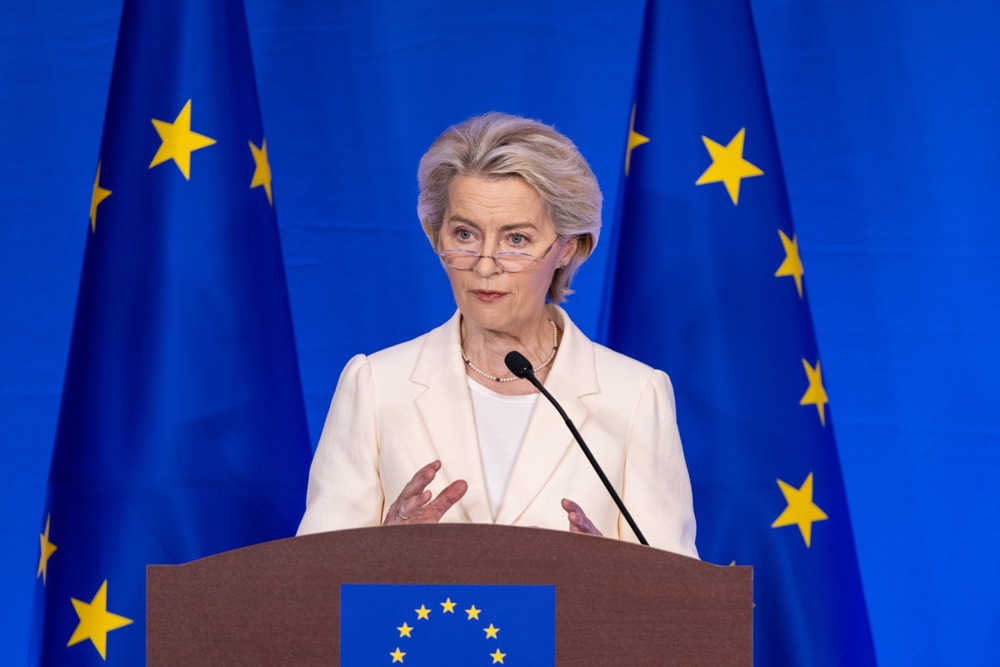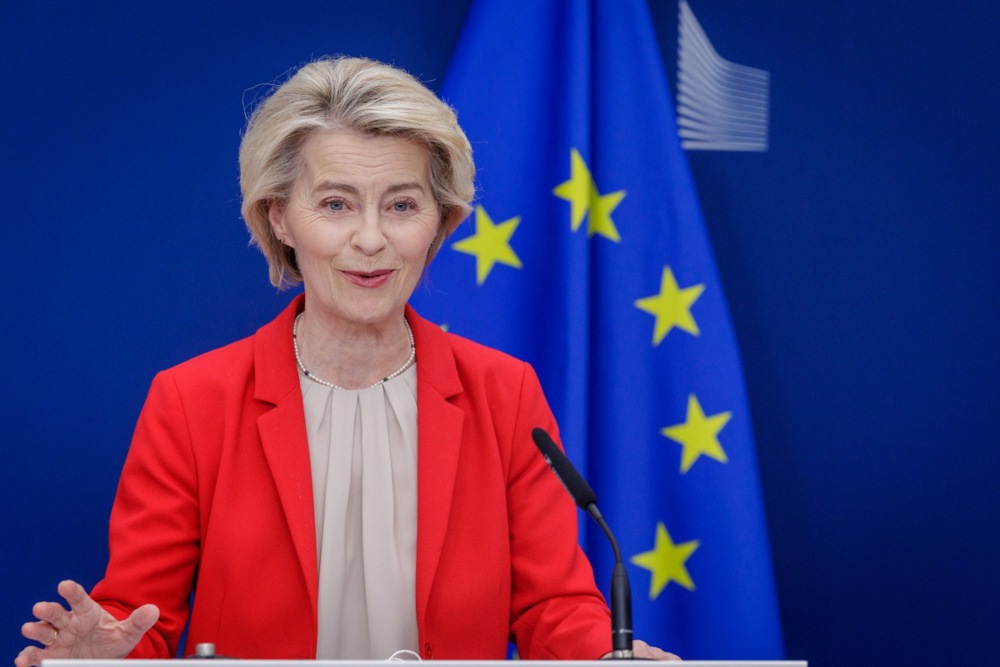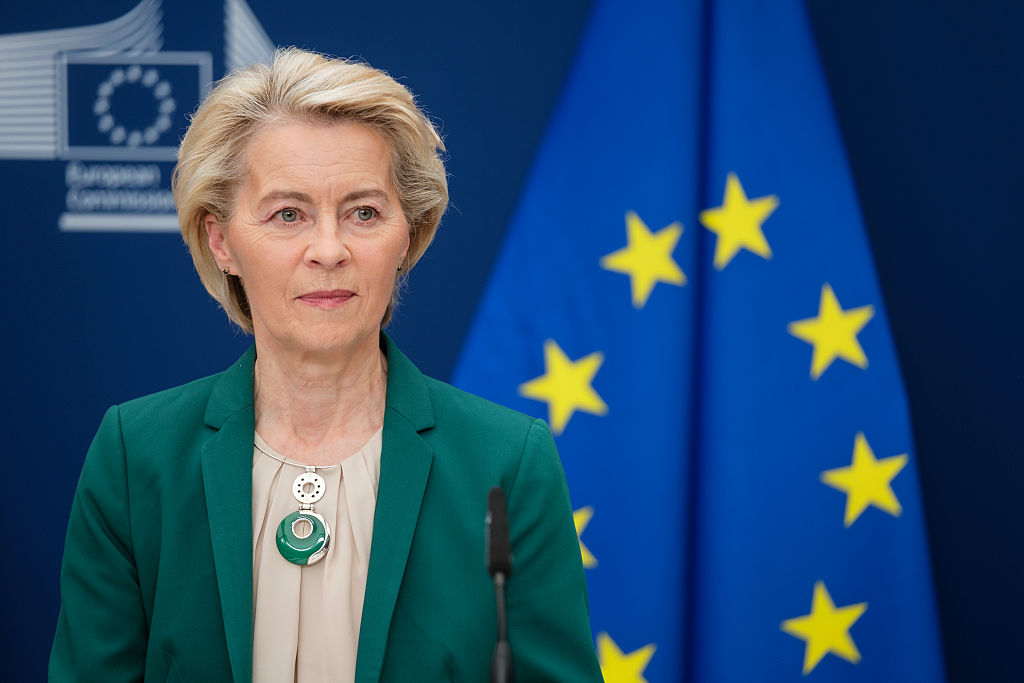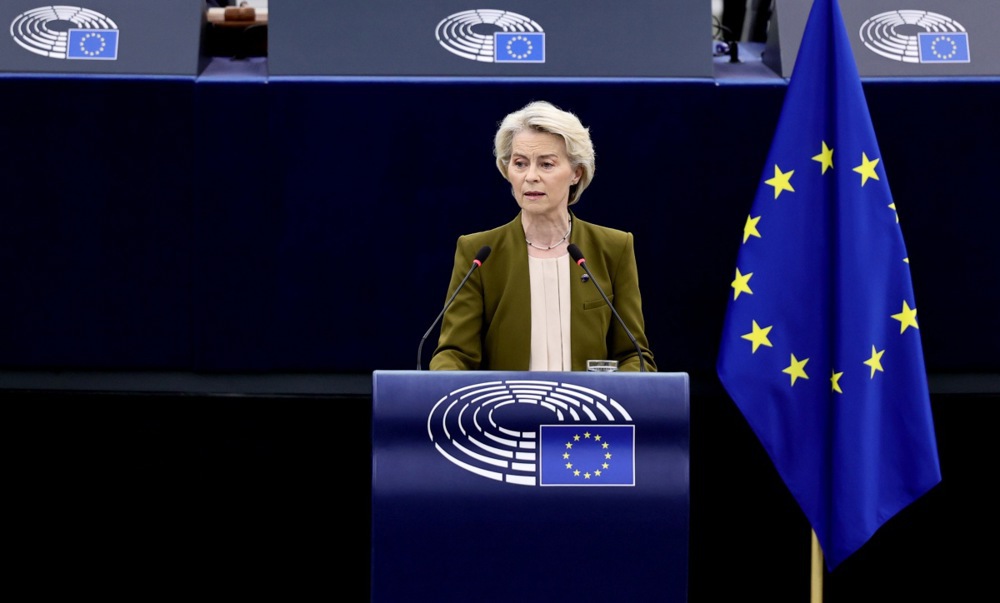Romanian MEP Gheorghe Piperea filed an action against European Commission President Ursula von der Leyen for alleged defamation and demanded “moral damages” over her comments in the European Parliament.
Piperea, of the right-wing European Conservatives and Reformists (ECR), led the recent motion of no-confidence against the EC chief and collected the necessary signatures to do so.
Other MEPs who have signed the motion will join him in a collective action at the Court of Justice of the European Union (CJEU).
Piperea contends that von der Leyen, in her plenary speech, chose to personally attack the initiator of the motion rather than address the substance of the accusations.
When defending herself in the European hemisphere, he said von der Leyen called her opponents “extremists”, “polarising society and eroding trust in democracy with false claims of election meddling and attempting to rewrite the history of how successfully Europe overcame the global pandemic together”.
Von der Leyen said Piperea’s no confidence motion was “another crude attempt to drive a wedge between our institutions, between the pro-European, pro-democratic forces of this House” and that it was “supported by the puppet masters in Russia and elsewhere”.
Today, Piperea sent out a press release, seen by Brussels Signal, stating he would file a legal action under Article 340 of the Treaty on the Functioning of the European Union (TFEU).
He seeks moral damages and an official apology for what he alleges were “defamatory and politically motivated accusations made by the Commission and its representatives”.
In support of the lawsuit, Piperea alleges that on July 20 an EC spokesperson officially repeated and endorsed her claims, directly tying his name to alleged Russian propaganda and extremist agendas.
“Such claims are not only completely unfounded, but also damaging to my reputation and political activity as an elected representative of the European people,” Piperea states.
“This is a politically orchestrated attack meant to delegitimise democratic opposition within the EU institutions.”
The MEP said the lawsuit was the beginning of what could become a landmark case in the debate over institutional accountability and political discourse within the European Union.
On July 23, Piperea gave the EC President an ultimatum of seven days to prove her claims, or retract them and apologise.
Von der Leyen apparently did neither and on July 31 the Romanian MEP said he would push ahead and take her to court.
His the legal action seeks “an official public apology from the European Commission and its President for the defamatory statements, moral damages and full reimbursement of legal costs, including travel and attorney fees incurred in the proceedings”.
Piperea argues that the EC’s statements violated fundamental principles of democratic debate and misinformed EU citizens about the nature and legitimacy of his parliamentary activity.
He said his motion of censure was based on documented and judicially confirmed failures by the EC to uphold transparency and accountability in its dealings with pharmaceutical companies during the pandemic.
Piperea used the Pfizergate court case as the main foundation of his motion, after the European General Court criticised von der Leyen for refusing to disclose text messages exchanged with Pfizer CEO Albert Bourla. It confirmed accusations of maladministration and document concealment concerning contracts worth a reported €35 billion.
According to the Piperea press statement, a “significant number of the co-signatories of the June 2025 motion of censure have formally joined the lawsuit as co-litigants, transforming the case into a collective legal action”.
It alleged that reflected “growing concern among members of the European Parliament over what they view as an abuse of institutional power and an attempt to stigmatise legitimate parliamentary opposition through public defamation”.
“This is no longer just a personal matter — it has become a broader defence of parliamentary integrity and freedom of expression within the EU institutions,” Piperea stated.
“By taking this case forward collectively, we are standing against the erosion of democratic norms and the political weaponisation of institutional communication.”
A much-anticipated vote of no-confidence against European Commission President Ursula von der Leyen, triggered by the controversial deal she made with Pfizer, has failed to garner enough support. https://t.co/07JOSeJFDf
— Brussels Signal (@brusselssignal) July 10, 2025





